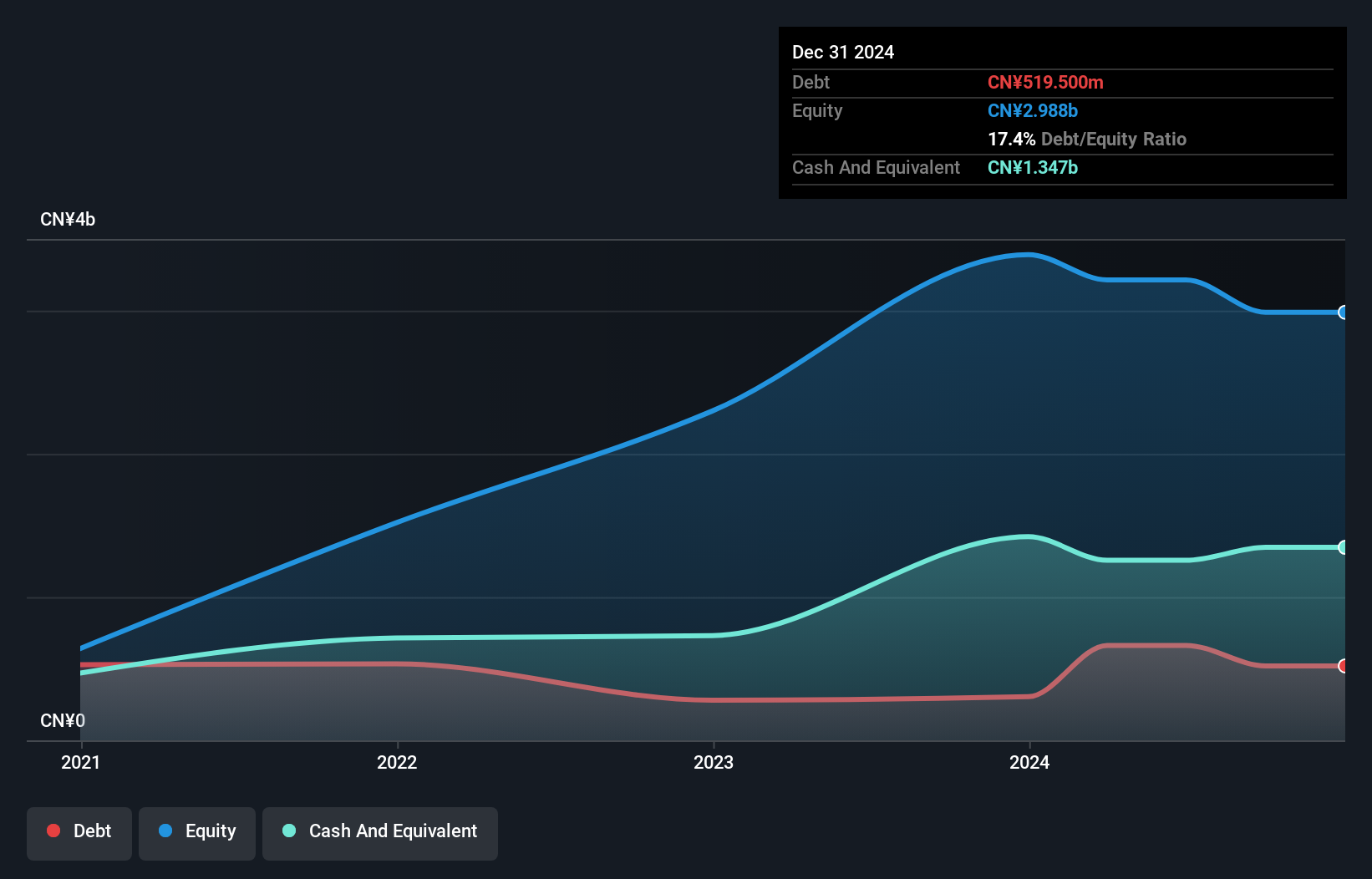Is Sino-Synergy Hydrogen Energy Technology (Jiaxing) (HKG:9663) Using Too Much Debt?
Some say volatility, rather than debt, is the best way to think about risk as an investor, but Warren Buffett famously said that 'Volatility is far from synonymous with risk.' So it might be obvious that you need to consider debt, when you think about how risky any given stock is, because too much debt can sink a company. Importantly, Sino-Synergy Hydrogen Energy Technology (Jiaxing) Co., Ltd. (HKG:9663) does carry debt. But should shareholders be worried about its use of debt?
Why Does Debt Bring Risk?
Debt assists a business until the business has trouble paying it off, either with new capital or with free cash flow. Part and parcel of capitalism is the process of 'creative destruction' where failed businesses are mercilessly liquidated by their bankers. While that is not too common, we often do see indebted companies permanently diluting shareholders because lenders force them to raise capital at a distressed price. By replacing dilution, though, debt can be an extremely good tool for businesses that need capital to invest in growth at high rates of return. When we examine debt levels, we first consider both cash and debt levels, together.
What Is Sino-Synergy Hydrogen Energy Technology (Jiaxing)'s Debt?
The image below, which you can click on for greater detail, shows that at December 2024 Sino-Synergy Hydrogen Energy Technology (Jiaxing) had debt of CN¥519.5m, up from CN¥304.1m in one year. But on the other hand it also has CN¥1.35b in cash, leading to a CN¥827.7m net cash position.

A Look At Sino-Synergy Hydrogen Energy Technology (Jiaxing)'s Liabilities
The latest balance sheet data shows that Sino-Synergy Hydrogen Energy Technology (Jiaxing) had liabilities of CN¥1.36b due within a year, and liabilities of CN¥316.2m falling due after that. On the other hand, it had cash of CN¥1.35b and CN¥1.70b worth of receivables due within a year. So it actually has CN¥1.37b more liquid assets than total liabilities.
This excess liquidity is a great indication that Sino-Synergy Hydrogen Energy Technology (Jiaxing)'s balance sheet is almost as strong as Fort Knox. Having regard to this fact, we think its balance sheet is as strong as an ox. Succinctly put, Sino-Synergy Hydrogen Energy Technology (Jiaxing) boasts net cash, so it's fair to say it does not have a heavy debt load! There's no doubt that we learn most about debt from the balance sheet. But it is Sino-Synergy Hydrogen Energy Technology (Jiaxing)'s earnings that will influence how the balance sheet holds up in the future. So when considering debt, it's definitely worth looking at the earnings trend. Click here for an interactive snapshot.
See our latest analysis for Sino-Synergy Hydrogen Energy Technology (Jiaxing)
In the last year Sino-Synergy Hydrogen Energy Technology (Jiaxing) had a loss before interest and tax, and actually shrunk its revenue by 37%, to CN¥442m. That makes us nervous, to say the least.

So How Risky Is Sino-Synergy Hydrogen Energy Technology (Jiaxing)?
By their very nature companies that are losing money are more risky than those with a long history of profitability. And in the last year Sino-Synergy Hydrogen Energy Technology (Jiaxing) had an earnings before interest and tax (EBIT) loss, truth be told. And over the same period it saw negative free cash outflow of CN¥528m and booked a CN¥407m accounting loss. However, it has net cash of CN¥827.7m, so it has a bit of time before it will need more capital. Overall, its balance sheet doesn't seem overly risky, at the moment, but we're always cautious until we see the positive free cash flow. The balance sheet is clearly the area to focus on when you are analysing debt. However, not all investment risk resides within the balance sheet - far from it. Case in point: We've spotted 1 warning sign for Sino-Synergy Hydrogen Energy Technology (Jiaxing) you should be aware of.
At the end of the day, it's often better to focus on companies that are free from net debt. You can access our special list of such companies (all with a track record of profit growth). It's free.
Have feedback on this article? Concerned about the content? Get in touch with us directly. Alternatively, email editorial-team (at) simplywallst.com.
This article by Simply Wall St is general in nature. We provide commentary based on historical data and analyst forecasts only using an unbiased methodology and our articles are not intended to be financial advice. It does not constitute a recommendation to buy or sell any stock, and does not take account of your objectives, or your financial situation. We aim to bring you long-term focused analysis driven by fundamental data. Note that our analysis may not factor in the latest price-sensitive company announcements or qualitative material. Simply Wall St has no position in any stocks mentioned.
 Wall Street Journal
Wall Street Journal